
Getting into a car accident can be a stressful and confusing experience, especially if it's not your fault. Knowing the proper steps to take immediately if someone hits your car can help you manage the situation more effectively. It's important to stay calm, ensure everyone's safety, and begin documenting the accident and exchanging information with the other driver.
After the accident, your priority should be documenting everything and starting the claims process with your insurance company. Understanding your auto insurance policy, the extent of your coverage, and how to communicate with insurance representatives can make a big difference in how smoothly the process goes. In addition, knowing your rights and when to seek legal assistance can protect you from being taken advantage of and ensure you receive fair compensation for damages and injuries. At Fincher Law Injury & Accident Lawyers, we can help you, so contact us for a free consultation.
If someone hits your car, the first thing to do is to check that all parties involved are safe and unharmed. Move vehicles out of traffic if it's safe to do so. Then, it's crucial to call 911 to report the accident and request medical assistance. Even in minor accidents, a police report can be invaluable. Documenting the scene with photos and notes can also help later during the insurance claim process.
Immediately check if anyone is injured, including yourself, passengers in your vehicle, and occupants of the other vehicles involved. Call for medical help if needed. Safety is your top priority, so move to a safe spot away from traffic. If catastrophic injuries prevent moving someone, wait for emergency personnel to arrive before attempting to move them.
In accidents without serious injuries, ensure everyone moves to a safe location. Turn on your vehicle's hazard lights to alert other drivers. If the accident occurred in a dark or poorly lit area, use a flashlight or phone light to ensure you and the other parties are visible to oncoming traffic. This precaution helps prevent additional accidents.
After ensuring everyone's safety, immediately call 911. Inform the dispatcher about the accident, including any injuries and the need for police or medical assistance. Even if the accident seems minor, you need a police report for insurance. The report provides an official account of the accident, which can be crucial for resolving disputes with insurance companies.
When the police arrive, give them an accurate account of what happened. Only admit fault or blame the other driver once they've completed their investigation. The police will document the scene and may issue citations if there are law violations. This official accident report is vital for your insurance claim and legal actions.
Take photos of the crash site from a few angles, capturing the positions of vehicles, damage to all cars involved, and all road signs or signals. This will be important, even if you have full collision coverage for your damaged vehicle. These images are crucial for insurance claims and legal purposes. If there are witnesses, ask for their contact information. Their accounts can support your version of events.
Document the weather and road conditions, as these factors can affect the accident's dynamics and fault determination. Note the time and location of the accident.
Exchange information with the other driver, including names, contact information, insurance information, and vehicle details. Take photos of the other driver's insurance card and license plate if possible. If there are other passengers or witnesses, collect their contact information, too.
Be polite but cautious when talking to the other driver. Avoid discussing the fault or details of the accident beyond what's necessary to exchange information. These conversations can be misinterpreted or used against you in insurance claims or legal proceedings.
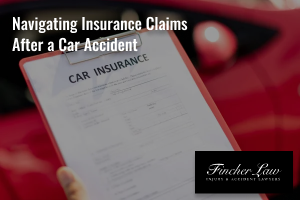
Once you're safe and have documented the accident, the next step is to contact your insurance company to report the accident. Be prepared to provide all the information and evidence you've gathered. Your insurer will guide you through the process of filing a claim.
Know what your auto insurance policy covers. Coverage can vary widely, including liability, collision, and comprehensive coverage. Understanding your deductible and the amount you pay out of pocket before insurance pays is also crucial.
If the accident involves a hit-and-run driver, your policy may have specific provisions for such situations. Uninsured motorist coverage can also play a role if the other driver lacks insurance. Reviewing your policy periodically and after an accident is essential to understand your coverage and rights.
Communicating with your insurance company after an accident should be straightforward. Please provide them with all the documentation and information you've collected. Be honest and detailed about the accident and your damages.
Insurance representatives are there to help, but they also represent the company's interests. Keep records of all communications, including dates, times, and the content of conversations. This documentation can be crucial if disputes or misunderstandings exist about your claim.
Disputes over claims can arise for various reasons, such as disagreements over fault or the extent of damages. If your claim is denied or you are unsatisfied with the settlement offer, review the decision with your insurer. Understand why they made their decision and provide additional evidence if necessary.
If disputes continue, consider seeking legal advice. A lawyer can help negotiate with the insurance company or pursue legal action if necessary. Remember, insurance policies have limits, and sometimes, the cost of repairs or medical expenses can exceed these policy limits, leading to disputes.
A police report is a critical document after a car accident. It provides an objective account of the crash. The report includes details about the drivers involved, their insurance information, witness statements, and the officer's accident assessment.
The police report can help establish fault, essential for insurance claims. Insurance providers depend on this report to determine which driver's insurance should cover the damages. With a police report, it can be easier to prove your claim.
A police report can also protect you from fraudulent claims by the other driver. It documents the details of the accident, making it harder for the other driver to change their story later. This protection is significant in hit-and-run accidents or when the other driver provides false insurance information.
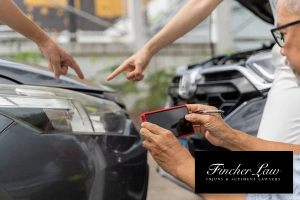
After a car accident, assessing the damage to your vehicle is critical. Take your car to a reputable body shop for a detailed estimate of the repair costs. This estimate will be a crucial part of your insurance claim.
Discuss the repair process with your insurance company. Some companies have preferred repair shops, but you usually have the right to choose where to repair your car. Understand how your insurance company handles repair approvals and payments to ensure the process goes smoothly, even if the accident involves a parked car.
Insurance companies typically pay directly to the repair shop, but you must pay your deductible first. If the other driver was at fault, their insurance might cover the repair costs without requiring you to spend a deductible.
As a car accident victim, you have the right to compensation and protection under the law. This includes the right to file a claim with your insurance company or the other driver's insurer, depending on who was at fault. You're entitled to compensation for not only vehicle damage but also medical expenses, lost wages, and pain and suffering if you're injured.
Understanding your auto insurance policy and the extent of your coverage is crucial. Policies vary, but you might have coverage for medical expenses, collision damage, and more. If the crash was a hit-and-run or the other driver does not have insurance, your policy might offer protection.
Even if an accident seems minor, consulting with a lawyer is wise. Legal expertise can be pivotal in insurance claims, determining fault, and understanding your rights. An attorney represents you as you negotiate with insurers. An attorney can collect evidence from bolstering your claim, negotiating with insurance companies, and pursuing legal action to ensure you receive fair compensation.
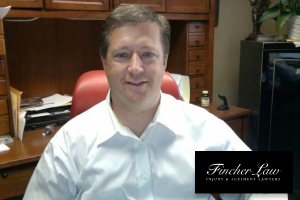
If you've been involved in a car accident in Kansas, don't navigate the aftermath alone. Fincher Law Injury & Accident Lawyers is here to support you every step of the way. Contact us today for a free consultation.
Schedule Your
Free Consultation
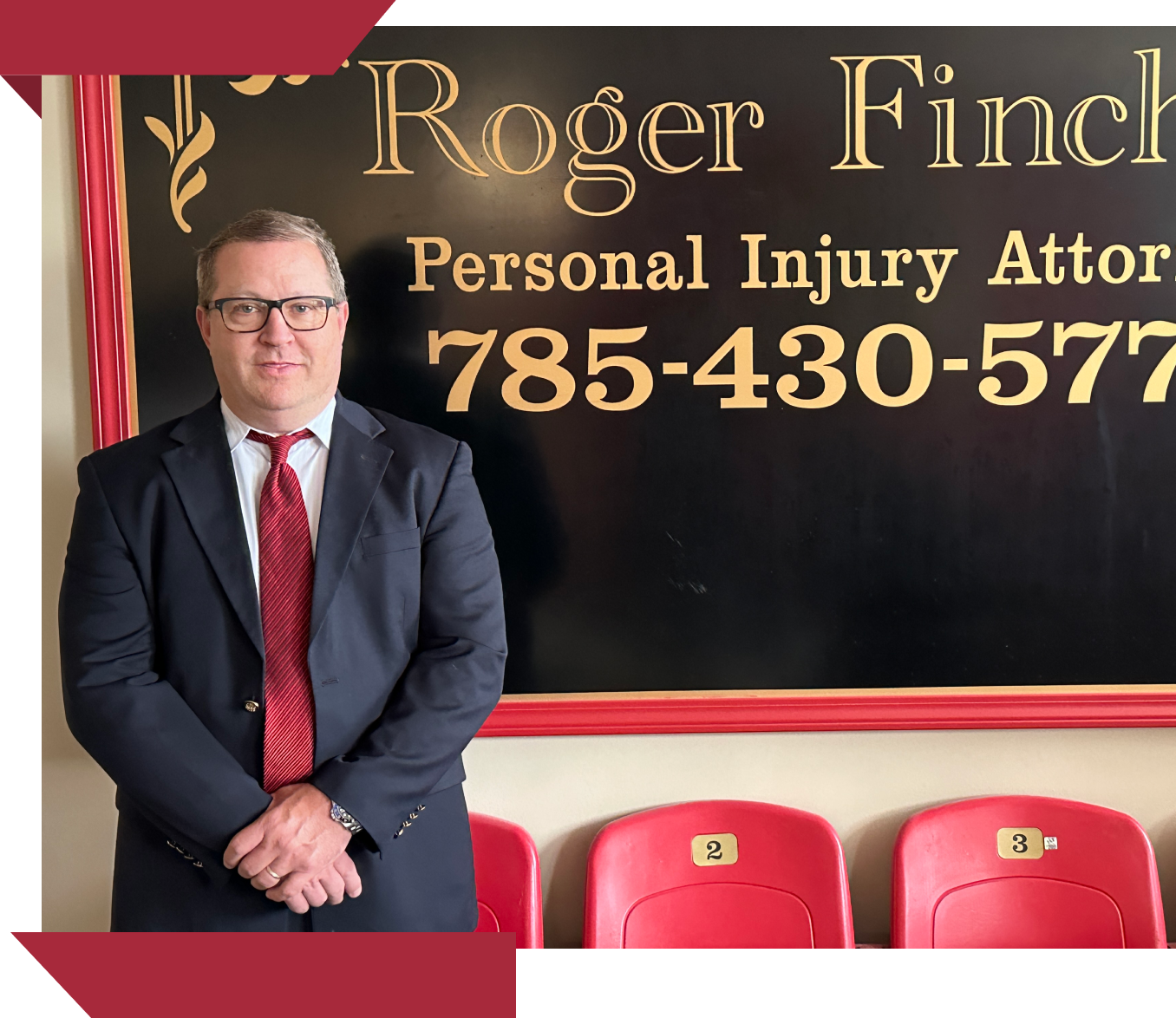
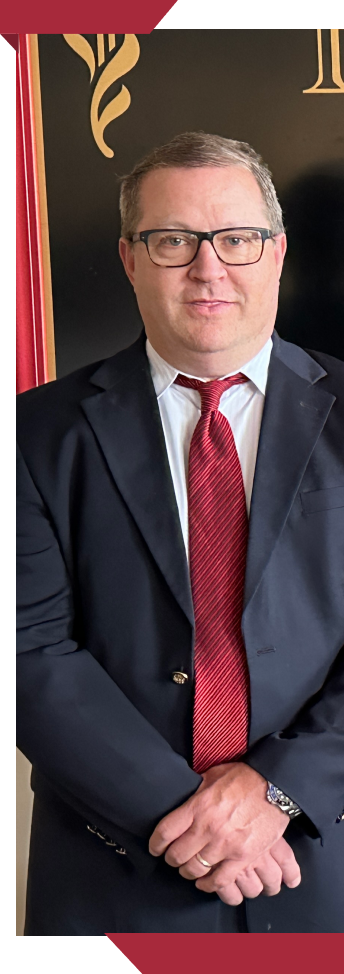

How Can We Help You?
How Can We
Help You?
Schedule a Free Consultation Now By Contacting
Our Team at (785) 430-5770 or by completing the form below
Schedule a Free Consultation Now
By Contacting Our Team
at (785) 430-5770
"*" indicates required fields